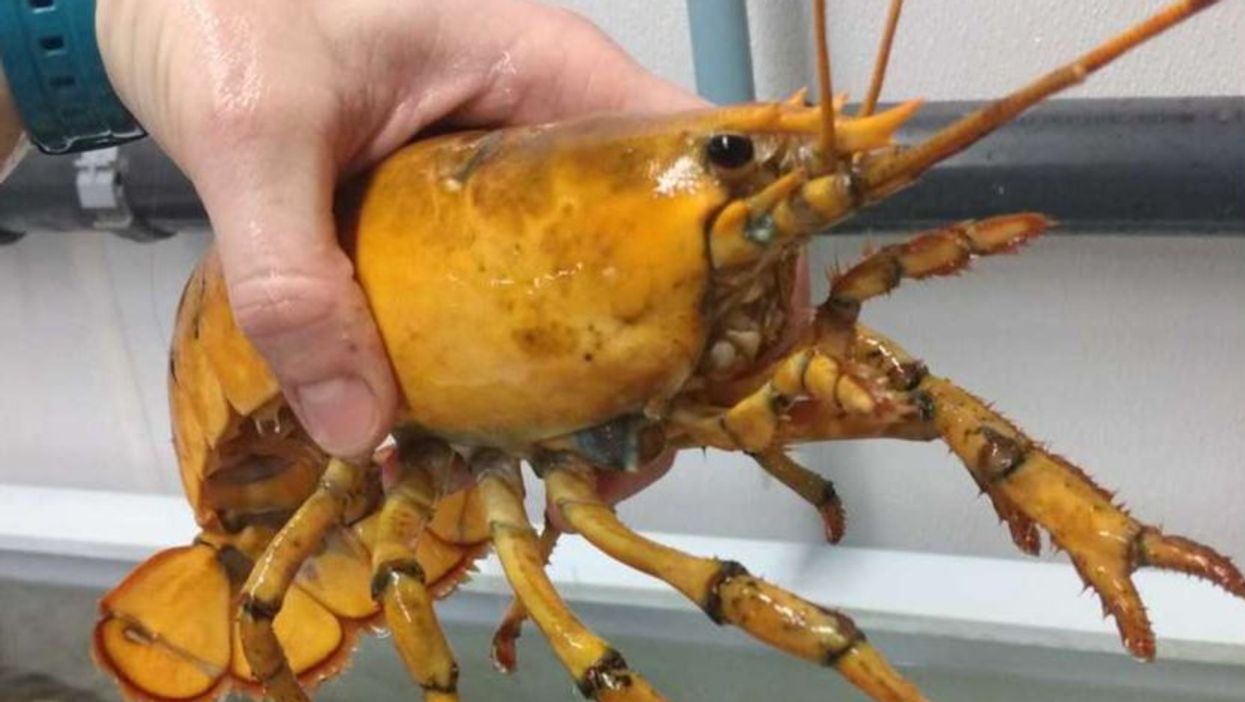
An extremely rare yellow lobster has been discovered off the coast of Maine – home of the self-declared lobster capital of the world.
Only one in 30 million lobsters are thought to have yellow-coloured shells, according to the New England Aquarium.
This suggests that Tenants Harbor lobsterman Marly Babb was three times as likely to have been struck by lightning than to make his extraordinary catch in the Gulf of Maine this week.
Babb donated his catch to the University of New England’s (UNE) Marine Science Centre, where the crustacean was named "Banana".
The Gulf of Maine is no stranger to rare lobsters.
While blue lobsters are caught every so often, shortly before Halloween last year, a fisherman in Stonington – the harbour town at the heart of Maine's "lobstocracy" – pulled up a translucent "ghost" lobster.
He wrote on Facebook that he had "notched" the lobster's tail to warn other lobstermen to put her back in the sea to allow if caught again in the future.
And in 2018, a rare calico lobster was nicknamed "Friendly Kreuger" for its Halloween-esque colouration. Calicos are equally as rare as yellow lobsters.
The latest discovery comes as scientists carry out an urgent investigation into the impact that global heating is having upon lobster larvae in Maine.
With the Gulf of Maine warming faster than 99 per cent of the world's oceans over the past three decades, climate breakdown has already had a noticeable impact on populations of lobster – which are a significant pillar of the local economy.
Initially, these warmer conditions have provided a huge boost to the species' population.
“It’s actually been really positive for us. We’ve seen probably the most favourable environmental conditions for lobsters ever,” executive director of the Maine Lobstermen’s Association, Patrice McCarron, told The Guardian in 2018.
But scientists fear that – as has already happened further down the coastline in Massachusetts and New Jersey – the changing climate could lead to an eventual decline in the long-term.
Let's hope Babb stays lucky.
More: Why now is a critical time in the fight to end overfishing













